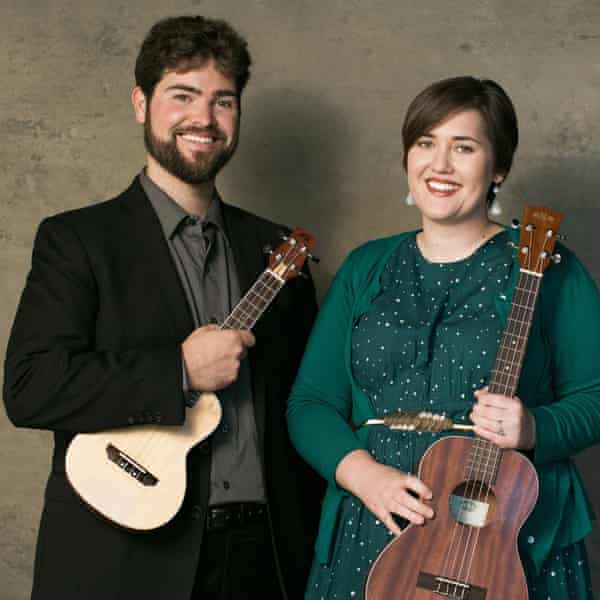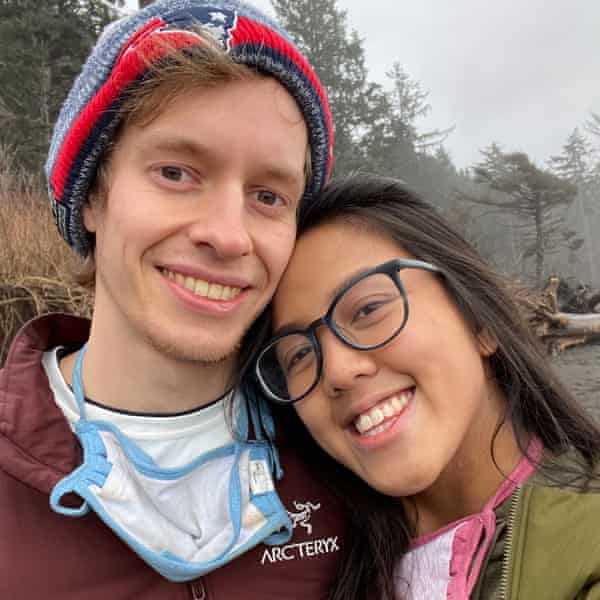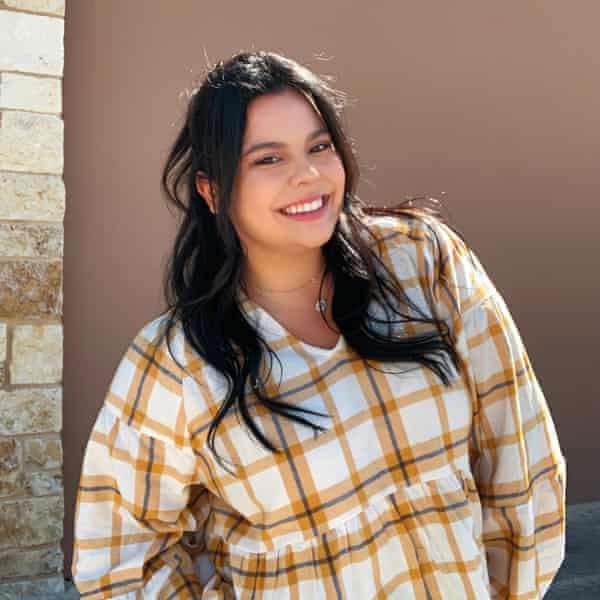Nearly two years ago, the dawn of Covid lockdowns forced us to contend with the prospect of solitude and self-reflection. Naturally, we rushed to find other stuff to do.
Alongside the endless walks and compulsive baking, the early months of 2020 saw the blossoming of an array of tech trends: virtual gathering apps like Houseparty and Clubhouse, online events from trivia nights to Zoom weddings, livestreamed performances and art exhibitions.
Some of these trends have faded. But through all the Zoom fatigue and screen-time overdoses, the pandemic has forced us to find new ways to relate to each other – and that has meant creative opportunities and connections we’d otherwise have missed.
As we enter a new year, with the faintest glimmer of hope that someday, maybe, the pandemic will end, we spoke to those who say their lockdown-born activities are worth keeping – Covid or no Covid.
The film buffs: ‘It came naturally to me’
When lockdown began, 29-year-old gym trainer Stevie Rock began to feel isolated from friends and family as she hunkered in her Oakland, California, apartment. So she started up a new tradition: a weekly movie night with a friend in Seattle.
The two used Netflix Party (now called Teleparty) – a popular app that allows users to coordinate their streaming and watch together, remotely, and Zoom to chat during the films. They shared a meticulous spreadsheet of the movies they watched, rating them with different criteria and emojis.
“It was a really good way to feel connected to somebody who felt very far away and have a shared experience,” she said.
And while strict lockdowns have lifted and Rock has gone back to working in person and spending time with friends in real life, the movie nights have persisted.
“I am very comfortable forming bonds with people online, so it came very naturally to me,” she said. “In some ways I feel like the pandemic has normalized something I would like to be doing more of anyway.”
The virtual trivia master: ‘It’s fun to see people quibble’
For Casey Morell, a journalist at NPR, lockdown isolation led to a similar effort to connect online in a unique way. In May 2020, the now 31 year old began hosting Jeopardy!-like trivia for friends, joining a wave of trivia nights gone virtual during lockdown.

Every couple of months, he gathers contestants in Google Meet rooms for a set of head-to-head competitions. Groups of three or four contestants race to answer trivia questions for points. Winners then play against each other.
Morell has used the events as an opportunity to bring together people who haven’t met in person. “It’s pretty fun to see people who don’t know each other get together and quibble over who buzzed in first,” he said.
As Covid restrictions have come and gone, Morell’s games have continued online – just as popular pub quiz companies such as Geeks Who Drink continue to offer virtual events alongside real-life ones. Morell expects them to live on even if and when the pandemic fades.
“Part of the fun is having everything virtual,” he said. “You don’t have to go out and you don’t have to spend any money.”
The role players: ‘Dungeons and Dragons helped us meet people’
Role-playing games like Dungeons and Dragons have also thrived during the pandemic, with Zoom and digital gaming platforms such as Roll20 allowing players to convene online. Wizards of the Coast, owner of the D&D brand, reported sales jumped 33% in 2020, and the game’s popularity doesn’t seem to be fading, with Fandom, maker of a digital tool used to track players’ progress, reporting a 16% increase in users this year.

John Mansfield, 31, and Winona Hendrick, 30, who are music teachers in San Francisco, played role-playing games in person before shifting online early in the pandemic. Playing virtually has brought a range of benefits. “Through D&D, we actually met people in the pandemic having never met in person and then became good friends,” Mansfield said.
It has also enabled easier scheduling. “It’s really convenient to play on Zoom because half of us are in San Francisco and the other half are in the East Bay,” Hendrick said. Another player moved to Puerto Rico during the pandemic, and meeting virtually has allowed the group to continue playing together.
“We’ve said this so many times to each other: role-playing games have just really helped with the pandemic,” Mansfield said. Particularly during lockdown, Hendrick added, “having anything to look forward to during the week was really major.”
The Animal Crossing gamer: ‘Sometimes you just want to hear something nice from a stranger’
Early in the pandemic, Malea Sary, 25 – a union organizer who’d just moved across the country – went on a quest. “All my friends were tweeting about Animal Crossing and how they were able to connect and bond over it – and that is what I really wanted, as someone who was now 2,000 miles away from all of my friends and loved ones,” she said.

But to play the video game, she’d need a Nintendo Switch – nearly impossible to find at the time amid soaring demand and going for hundreds of dollars over retail price. Sary wasn’t going to be ripped off – so she made a 16-hour round-trip journey to Montana, where a seller was offering the console at a reasonable price.
It was worth the trip. Animal Crossing: New Horizons, which lets players interact as they develop virtual islands, offered a much-needed outlet for an extrovert like Sary. “I’ve been able to hang out with my friends back home,” she said. “Because you’re sharing this moment together, the distance doesn’t seem real.”
And it had an added perk. She soon met someone on Tinder who also happened to have the game. “We met once, socially distanced, at the beach, and I was like, ‘We should be creative with how we hang out,’” she said. They spent their next several dates playing Animal Crossing. “We’d send [in-game] gifts to each other and visit each other’s islands,” she said. More than a year later, they’re still together – and still playing the game.
“I just really missed going to a coffee shop and being able to talk to someone for a few minutes,” Sary said of the early pandemic. In-game interactions provided something akin to that feeling, she said: “Sometimes you just want to hear something nice from a stranger.”
The support group user: ‘I’ve heard impactful stories in my online 12-step program’
While some have used tech to connect with old friends in the pandemic, others have found new communities they otherwise had not been able to access. Tara, a 30-year-old writer, said she started attending 12-step meetings for the first time when they migrated to Zoom during the pandemic.
She said the accessibility of online meetings and extra level of anonymity provided by video-free chatting made the barrier to entry lower. Though she lives in New Jersey she spent time connecting with fellows in New York City meetings.
“It was great to be able to find meetings that align with my needs, like for young people and non-religious people,” she said. “I got to see people share some really impactful stories that I would not have been able to hear if we were attending meetings in our respective states in person.”
The never-ending Zoom chat: ‘A lifeline that I didn’t know I needed’
By May 2020, a sense of isolation was settling in among those working from home. Cache Bunny, a Los Angeles-based video director, had an idea: a Zoom chat for anyone and everyone who wanted some company while working from home. She described it as “the quarantine version of going to work in a coffee shop” – participants could silently work while others did the same on their cameras, interacting through the chat feature.

Nineteen months later, the Zoom chat, called Edit Party, hasn’t stopped. Administrators restart it every 24 hours, making for a single endless Zoom call that has gathered participants from around the world. “For me it’s kind of like a co-working space without any of them being your real co-workers,” said Monica Valdez, 27, who joined in October from San Antonio, Texas, hours away from her real colleagues.
For Valdez, Edit Party has brought new friends – regular users who meet on Zoom often gather in real life – as well as collaborators. “We have meetups. We play games together. The other night we did a cookie baking video session, so everyone who was on in America was baking cookies together,” she said. And as a developer and programmer, “I’m able to go in there and be like, ‘Hey, can somebody look at this code, it’s giving me a hard time’ – everybody’s just willing to help.”
Meanwhile, she’s been learning Spanish in order to talk to users in Central and South America.
“There are some days when I’m on it all day,” she said, watching as people in different time zones log on and off. “These people have become practically a community to me, who I talk to on a regular basis,” she said. “It was a lifeline I didn’t know I needed.”
Post a Comment